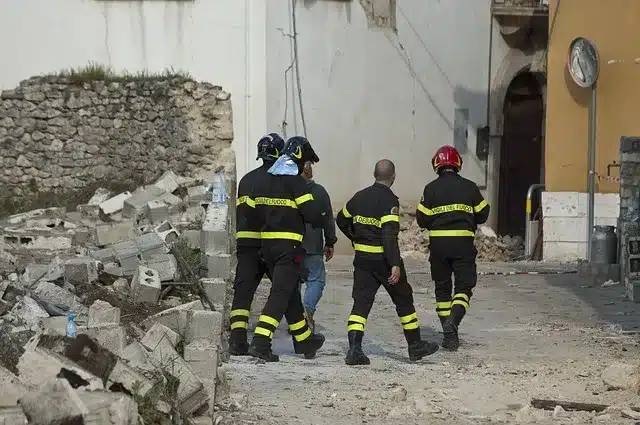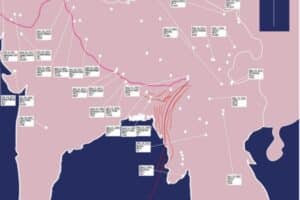How Can We Empower the Disaster Management Crew?
When disaster strikes, every second counts. Whether it’s a natural calamity like a hurricane or an unforeseen human-made crisis, disaster management crews play a vital role in saving lives and minimizing damage. In this article, we will delve into the ways we can empower these unsung heroes to enhance their effectiveness in the face of adversity.
Understanding the Role of Disaster Management Crews
Before we explore ways to empower disaster management crews, let’s understand the critical functions they perform. These dedicated individuals are on the front lines during emergencies, providing immediate response, relief, and recovery efforts. They work tirelessly to ensure public safety and mitigate the impact of disasters on communities.
Now, let’s dive into how we can empower these brave men and women.
1. Education and Training
Empowerment begins with knowledge. Proper training and education are essential for disaster management crews to excel in their roles. By investing in ongoing training programs, we can ensure that these professionals stay updated with the latest techniques, technologies, and best practices in disaster management.
2. Access to Advanced Technology
In today’s digital age, technology can significantly enhance disaster response efforts. Equipping disaster management crews with cutting-edge tools such as drones for aerial surveillance, GIS mapping systems, and communication devices can make a substantial difference. These tools enable quicker, more informed decision-making during crises.
3. Strengthening Communication Channels
Effective communication is the backbone of any successful disaster response operation. Empowering disaster management crews means ensuring they have reliable and robust communication systems in place. This includes both internal communication among team members and external communication with the public and other agencies involved.
4. Mental Health Support
The toll of disaster management work on mental health should not be underestimated. Constant exposure to distressing situations can lead to burnout, PTSD, and other psychological challenges. Empowering these heroes also means providing access to mental health support and counseling services to help them cope with the emotional challenges they face.
5. Adequate Resources and Funding
Empowerment requires resources, and disaster management is no exception. Adequate funding is crucial to maintain well-equipped response teams and stockpile essential supplies. Governments and organizations should prioritize disaster management budgets to ensure crews have what they need when disaster strikes.
6. Community Engagement and Collaboration
Empowering disaster management crews is not a solo endeavor. It requires collaboration between communities, local authorities, and various agencies. By involving the community in disaster preparedness and response planning, we can build a more resilient and empowered force.
7. Recognition and Appreciation
Recognition can be a powerful motivator. Acknowledging the dedication and sacrifices of disaster management crews through awards and public appreciation can boost morale and inspire these professionals to continue their vital work.
8. Continuous Improvement and Evaluation
To empower disaster management crews, we must also embrace a culture of continuous improvement. Regularly evaluating past responses, identifying areas for enhancement, and implementing lessons learned can lead to more efficient and effective disaster management strategies.
9. International Collaboration
Disasters often transcend borders, making international collaboration crucial. Empowering disaster management crews means fostering relationships with neighboring countries and international organizations to share resources, knowledge, and expertise during global crises.
10. Public Awareness and Education
Lastly, empowering disaster management crews starts with educating the public about disaster preparedness. When communities are well-informed and actively participate in disaster prevention and response efforts, the burden on disaster management crews becomes more manageable.
How Can We Empower the Disaster Management Crew? Examples of on-duty

What are the Roles and Responsibilities of Disaster Management?
Disaster management encompasses a wide range of roles and responsibilities, including:
- Prevention: Identifying potential hazards and taking measures to reduce their impact.
- Preparedness: Developing plans, conducting drills, and training personnel for effective response.
- Response: Mobilizing resources, providing immediate assistance, and coordinating rescue and relief efforts during and after disasters.
- Recovery: Supporting affected communities in rebuilding and returning to normalcy.
- Mitigation: Implementing long-term measures to reduce the risk of future disasters.
These responsibilities vary depending on the specific context and the scale of the disaster.
What are the Disaster Management Strategies?
Disaster management strategies involve a combination of approaches:
- Risk Assessment: Identifying and analyzing potential risks and vulnerabilities.
- Emergency Response Plans: Developing detailed plans for various disaster scenarios.
- Resource Allocation: Ensuring that essential resources such as personnel, equipment, and supplies are readily available.
- Communication Plans: Establishing effective communication channels within response teams and with the public.
- Community Engagement: Involving the community in preparedness and response efforts.
- Training and Capacity Building: Equipping disaster management teams with the skills and knowledge needed for effective response.
Why is a Disaster Manager Important?
A disaster manager plays a pivotal role in coordinating and leading disaster response efforts. Their importance lies in:
- Decision-Making: Making critical decisions under pressure to minimize loss of life and property.
- Resource Management: Allocating resources efficiently to address immediate needs.
- Communication: Coordinating efforts among various agencies and stakeholders.
- Adaptability: Adapting to evolving disaster scenarios and dynamic conditions.
- Community Support: Providing reassurance and guidance to affected communities.
What is the Scope of a Disaster Manager?
The scope of a disaster manager’s role extends across the entire disaster management cycle, from pre-disaster preparedness to post-disaster recovery. They are responsible for:
- Risk Assessment: Identifying potential threats and vulnerabilities.
- Planning: Developing comprehensive disaster response plans.
- Resource Management: Ensuring the availability of personnel, equipment, and supplies.
- Coordination: Collaborating with various agencies, organizations, and communities.
- Response and Recovery: Leading response efforts and overseeing recovery initiatives.
- Training and Capacity Building: Building the skills and knowledge of response teams.
What are the Objectives of Disaster Management?
The primary objectives of disaster management are:
- Saving Lives: Minimizing casualties and injuries during disasters.
- Protecting Property: Reducing damage to infrastructure and assets.
- Ensuring Continuity: Maintaining essential services and infrastructure.
- Community Resilience: Enhancing communities’ ability to withstand and recover from disasters.
- Reducing Vulnerability: Implementing measures to mitigate future risks.
- Effective Response: Coordinating timely and efficient response efforts.
What are the Challenges of Disaster Management?
Disaster management faces several challenges, including:
- Resource Constraints: Limited funding and resources can hinder preparedness and response efforts.
- Coordination Complexities: Coordinating multiple agencies and stakeholders can be challenging during large-scale disasters.
- Climate Change: Increasing frequency and severity of disasters due to climate change pose new challenges.
- Population Growth: Rapid urbanization and population growth increase vulnerability in densely populated areas.
- Technological Dependencies: Reliance on technology can lead to vulnerabilities if systems fail during disasters.
- Community Engagement: Ensuring community participation and adherence to safety measures can be difficult.
Why is Disaster Planning Important?
Disaster planning is essential because it:
- Saves Lives: Well-structured plans ensure timely responses, reducing casualties.
- Minimizes Damage: Planning helps protect infrastructure and assets.
- Enhances Preparedness: It equips communities and response teams to handle emergencies effectively.
- Facilitates Recovery: Plans expedite the recovery process, restoring normalcy faster.
- Reduces Chaos: Effective planning reduces confusion and panic during disasters.
- Builds Resilience: Planning helps communities become more resilient and better prepared for future disasters.
In conclusion, How Can We Empower the Disaster Management Crew? is not just a matter of providing resources and training; it’s a holistic approach that encompasses education, technology, mental health support, and collaboration. These dedicated individuals are the unsung heroes who stand between us and disaster’s devastation. It’s our collective responsibility to ensure they have the tools, support, and recognition they deserve, ultimately making our communities safer and more resilient.
Together, we can empower the disaster management crew to face any challenge that comes their way, ensuring a more secure and prepared future for us all.
Here is the further read of “How Can We Empower the Disaster Management Crew”? > Link for Discussion
“How Can We Empower the Disaster Management Crew”?> Pdf





More Stories
What is Hazardous Waste Sign
What is Beach Hazard Statement
Disaster Management Degree: How to Get?